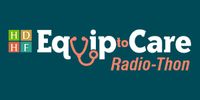The Saskatchewan Teachers’ Federation announced in a release on March 20 that its preliminary analysis of the province’s education funding announcement suggests per-student funding is poised to drop even further in the national ranking, potentially landing in 10th place among all provinces. It says that in 2015 - 16, Saskatchewan had the highest school board operating spending per student in the country, according to Statistics Canada.
“By 2021-22, it had fallen to eighth place, representing a reduction of 20.7 percent or $3,362 less per student, after adjustment for inflation. This preliminary analysis reveals that to maintain per-student funding at the 2015-16 level, per-student spending would need to increase by another 12 percent, which translates to an additional $268 million on top of the already announced $180 million,” stated the STF in a release.
“Since the Premier made the unusual move of announcing education funding two weeks prior to budget day, we have had time to dig into the numbers,” says STF President Samantha Becotte. “Instead of showing a real commitment to improve student learning conditions and teacher working conditions, Education Minister Jeremy Cockrill and Premier Scott Moe are making things worse, and that’s tremendously discouraging. Students, families, and teachers deserve transparency, accountability, and predictability in their publicly funded schools, all of which are sorely lacking from this government.”
The STF says that according to Premier Scott Moe’s announcement on March 6, 2024, school operating funding will increase from $2.0 billion in 2023-24 to $2.2 billion in 2024-25, representing an increase of 8.8 percent or $180 million. As a percentage of total education funding, however, supports for learning have declined over time, from 15.1 percent in 2017-18 to 14 percent in 2024-25.
“These are the funds intended to address critical class size and complexity issues, but this budget line is currently unrestricted. This means that school boards can choose to use these funds for other purposes, such as servicing debt, instead of being used to assist students with their learning needs. Teachers are adamant that restricting these funds to their intended use is essential to hold government and school boards accountable, and the best way to achieve this is within the language of a provincial collective agreement,” stated the STF.
“We have no assurance that this year’s funding increases will continue in non-election years, and in fact, past precedent suggests that it will not,” says Becotte. “Saskatchewan’s teachers are once again bringing our concerns straight to government’s front steps, demonstrating our unwavering commitment to current and future students’ needs. Government needs to make the needs of students a priority and fulfill their responsibility of supporting public education.”
Over 4000 will be at the Saskatchewan Legislature on March 20 to make their voices heard.
“They are gathering for the second time this month to call on the government to finally put students first, make a commitment to stable and sustainable funding for education, end the bad faith bargaining, and accept one of multiple paths forward that teachers have presented to get negotiations back on track,” stated the STF release.












